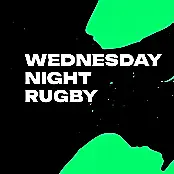"I do believe UFC will surpass soccer as the number one sport in Brazil. It has everything in place -- the stars, the athletes -- to become the biggest sport in the world."
Before I call "bullsh*t", those are the pronouncements of former UFC light heavyweight champion Vitor Belfort.
Soccer is synonymous with Brazil, even if their national side is at a relatively low ebb, so the prospect of any other sport supplanting it is highly unlikely.
However what Belfort was trying to get at is how popular mixed-martial arts is in Brazil and some of the most prominent fighters and champions in the UFC have emerged from those shores, namely Conor McGregor's upcoming opponent Jose Aldo and former middleweight champ Anderson Silva.
The latter in particular enjoys immense celebrity status in his own country as MMA Fighting.com writer Guilherme Cruz explained when he joined me on the line from Rio de Janeiro.
"Anderson Silva is the biggest idol in MMA history in Brazil. When he fought Vitor Belfort [in 2011], that's when he became a celebrity, when he kicked Belfort in the face in that iconic fight (watch above). That's when he became an icon in Brazil. Vitor was already a celebrity. He fought against Chuck Liddell on free Brazilian TV and even though he lost, he became famous and he was in a reality show. And when he fought Anderson, everybody in Brazil was talking about how Vitor is fighting a Brazilian for the [title]," said Guilherme.
Aldo may not be as big a celebrity as Silva, but he did pull off an impressive trick on Brazil and Barcelona star Neymar in a charity football match last year:
In contrast, "Jose Aldo is not a celebrity in Brazil" and does not capture the imagination beyond hardcore fans in the way that Silva has, partly down to his reluctance to get involved in the media game.
"But I believe that changed when Conor [McGregor] entered the UFC and people started talking about how big that fight would be. Conor started talking trash about him and that's when [Aldo] realised he could make a lot of money with this fight. And especially now that Brazil doesn't have Anderson Silva as a champion any more, so he became that guy who could continue to rise in the UFC," Guilherme explains.
And in terms of the importance of Brazil as a market for the UFC promotion, one stat really shows that off, with the country second only to the USA when it comes to the number of UFC events that have been held there, with the first all the way back in 1998 when Sao Paulo hosted UFC Ultimate Brazil.

Anderson Silva celebrates after knocking out Vitor Belfort in the first round of a middleweight title UFC 126 mixed martial arts bout, Saturday, Feb. 5, 2011, in Las Vegas. (AP Photo/Julie Jacobson)
But even from its inception, the Brazilian influence in the UFC has been strong with the Gracie family of martial-artists and Brazilian ju-jitsu experts playing a crucial role in the development of MMA - and Rorion Gracie among the founders of the first UFC back in '93.
Guilherme confirms: "Yes, the Gracie family is what made MMA exist at first, creating ju-jitsu and then started challenging other martial arts around Brazil and combining their techniques against Muay Thai fighters, boxers ... showing how dominant ju-jitsu could be against any other martial arts."
Regionally too, Aldo's home city of Manaus up in the Amazon Rainforest region (the England v Italy 2014 World Cup match was played there in high humidity) is one of the most important staging posts for producing mixed-martial artists in Brazil.
"Manaus is one of the best regions that have built great talents in ju-jitsu especially," says Guilherme, while adding that other cities like Curitiba, Rio de Janeiro and Sao Paulo are also important zones which have produced talent.
And on Belfort's claim about MMA taking over the pinnacle of Brazilian sports, Guilherme has a more reasoned argument.
"I don't think it will get anywhere close to where soccer is but it's getting bigger. Each year it's getting bigger. I believe it's bigger than any other sport except soccer in Brazil today!"
In Part 2, Guilherme speaks to me about the Aldo-McGregor fight tactics and what Brazilians make of the Dubliner.
Download the brand new GoLoud App in the Play Store & App Store right now! We've got you covered!
Subscribe to OffTheBall's YouTube channel for more videos, like us on Facebook or follow us on Twitter for the latest sporting news and content.








